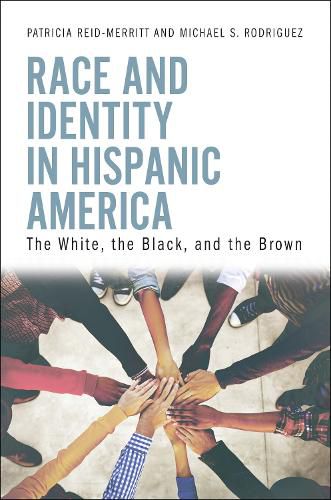Readings Newsletter
Become a Readings Member to make your shopping experience even easier.
Sign in or sign up for free!
You’re not far away from qualifying for FREE standard shipping within Australia
You’ve qualified for FREE standard shipping within Australia
The cart is loading…






This book offers a historical and comparative overview of the evolution of racial classifications in the United States, Latin America, and the Caribbean.
The Hispanicization of America is precipitating a paradigm shift in racial thinking in which race is no longer defined by distinct characteristics but rather is becoming synonymous with ethnic/cultural identity.
Traditionally, assimilation has been conceived of as a unidirectional and racialized phenomenon. Newly arrived immigrant groups or longstanding minority/indigenous populations were Americanized in confining their racial and ethnic natures to the private sphere and adopting, in the public sphere, the cultural mores, norms, and values of the dominant cultural/racial group. In contrast, the Hispanicization of America entails the horizontal assimilation of various groups from Spanish-speaking countries throughout the Western Hemisphere and Caribbean into a pan-ethnic, Hispanic/Latino identity that also challenges the privileged position of whiteness as the primary and exclusive referent for American identity.
Instead of focusing on one Hispanic group, ethnic identity, or region, this book chronicles the development of racial identity across the largest Hispanic groups throughout the United States.
Highlights distinct differences in perceptions of racial identity for members of the Hispanic community
Underscores the fluid and malleable nature of race through a comparative and historical review of the evolution of racial classifications
Explains why the Hispanicization of the United States constitutes a paradigm shift from traditional notions of racial identity formation
Documents how immigration to the United States from Spanish-speaking countries throughout the Western Hemisphere and Caribbean is creating the first truly Hispanic country by subsuming the national identities of immigrants to the pan-ethnic, Hispanic/Latino category
$9.00 standard shipping within Australia
FREE standard shipping within Australia for orders over $100.00
Express & International shipping calculated at checkout
This book offers a historical and comparative overview of the evolution of racial classifications in the United States, Latin America, and the Caribbean.
The Hispanicization of America is precipitating a paradigm shift in racial thinking in which race is no longer defined by distinct characteristics but rather is becoming synonymous with ethnic/cultural identity.
Traditionally, assimilation has been conceived of as a unidirectional and racialized phenomenon. Newly arrived immigrant groups or longstanding minority/indigenous populations were Americanized in confining their racial and ethnic natures to the private sphere and adopting, in the public sphere, the cultural mores, norms, and values of the dominant cultural/racial group. In contrast, the Hispanicization of America entails the horizontal assimilation of various groups from Spanish-speaking countries throughout the Western Hemisphere and Caribbean into a pan-ethnic, Hispanic/Latino identity that also challenges the privileged position of whiteness as the primary and exclusive referent for American identity.
Instead of focusing on one Hispanic group, ethnic identity, or region, this book chronicles the development of racial identity across the largest Hispanic groups throughout the United States.
Highlights distinct differences in perceptions of racial identity for members of the Hispanic community
Underscores the fluid and malleable nature of race through a comparative and historical review of the evolution of racial classifications
Explains why the Hispanicization of the United States constitutes a paradigm shift from traditional notions of racial identity formation
Documents how immigration to the United States from Spanish-speaking countries throughout the Western Hemisphere and Caribbean is creating the first truly Hispanic country by subsuming the national identities of immigrants to the pan-ethnic, Hispanic/Latino category